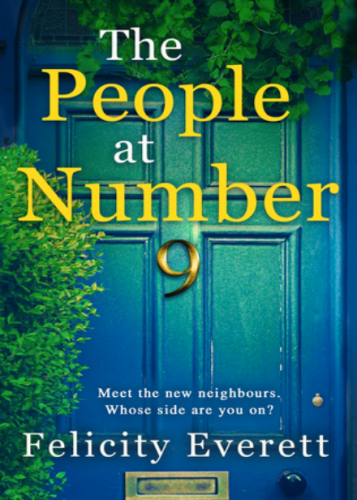
Expectations are everything.
This book looks like a psychological thriller. There’s something about the title and strapline, even the cover art, that leads you to expect dark twists involving significant emotional trauma and, ultimately, some kind of investigable crime. But that’s not what it is.
Read this expecting to uncover a killer or a demented bully residing at number 9 and you’ll probably end up disappointed, feeling flat and questioning what the point was.
However, read this as an intimate look at high intensity friendships, an exploration of middle class pretentiousness and a warning that the grass isn’t always greener, and you’ll be hooked.
What’s it about?
Sara is delighted when Gav and Lou move in next door. They’re creative, bohemian and promise to liven up the neighbourhood. So what if they’re totally self-obsessed and even careless enough to lose a child occasionally? They’re hip and Sara’s desperate to be part of the in-crowd.
But as Sara moves forward further away from her dull friends and becomes increasingly embarrassed by her caring-but-not-especially-dashing husband, Neil, she begins to wonder what she’s moving towards. What might her obsession cost her? What will it take to bring her to her senses? And will it be too late?
What’s it like?
This is a closely observed account of a friendship gone awry; a clear insight into the way the relentless mundanity of everyday life can erode a relationship; and a very honest look at the temptation offered by apparently greener grass.
Sara’s views of Lou shift as the novel develops, but the reader can see that Lou herself is unchanged and is, arguably, both real and really irritating from the beginning. From the daft names she and her husband have gifted their children (Zuleika, anyone?) to the faux-casual name-dropping she indulges in, Lou isn’t instant empathy material. And yet…Sara, too, is relentlessly depicted in such an honest manner as to render her unlikeable. Her initial introduction to Lou is deeply symptomatic. She is wincingly aware of her own potentially observable short-comings (too cliquey with a posh name) and immediately fascinated by her more bohemian neighbour.
These characters are almost painfully real and their reactions to each other, and ultimate disenchantment with each other, are completely convincing. I was particularly amused by Sara’s experiences with home-schooling (especially reading it with my teaching experience telling me that home-schooling was unlikely to be the easy street Sara imagined): her seduction and disillusionment is a microcosm of the wider story.
This story was never going to end well. It’s not a spoiler to say that it doesn’t!
Final thoughts
This is an odd read insofar as the reader ends up feeling like a voyeur, watching and waiting for something to happen between these four, frankly, quite dislikeable people. The denouement may feel a little flat, a little is-that-all? after all the tension building and the marketing that hints at a thriller ending, but this is a solid and convincing foray into the lives of two couples who are obsessed with appearances and, fundamentally, are deeply insecure.
It’s a little like reading someone’s personal diary. Not someone who expects their diary to be read one day and adjusts the information they share to keep potential readers onside, but someone who writes for catharsis, for the relief of bitching and moaning about their life to a silent, non-judgemental source. The writer won’t come off well; they’re too honest for that; but some raw truths are revealed about how many people’s personal relationships function – or don’t!
Read this if you like uneasy tales about personal relationships.